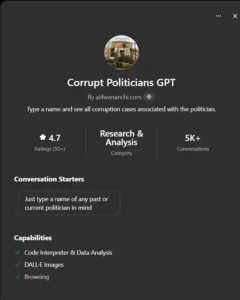Have you ever wondered why your conversations with ChatGPT sometimes take a bit longer than expected?
Understanding the reasons behind ChatGPT’s slow performance can help you manage your expectations and optimize your interaction with this AI tool.
Here are some key factors contributing to its slowness:
a) Surging demand and overloaded capacity
ChatGPT’s viral popularity has led to a significant increase in user demand, which can overload its capacity. This surge in usage often results in slower response times. As a result, OpenAI sometimes puts measures in place to curb downtimes. In the past, such measures have included:
- Temporarily halting subscriptions to ChatGPT Plus.
- Limiting the number of queries a user can make at a given period. Currently, this limit is [sc name=”chatgpt-limits”][/sc]
b) Technical limitations of GPT architecture
The GPT architecture, which ChatGPT is based on, is a transformer-style deep learning model. This type of architecture is computationally intensive and time-consuming to train, contributing to slower performance.
c) High traffic and server errors
Like any popular online service, ChatGPT faces challenges with high traffic and server errors. When a large number of users access the service at the same time, it can lead to server overload, resulting in slower responses.
This is often the case during and following major feature announcements, as with the case with DevDay where OpenAI launched custom GPTs, GPT-4 Turbo, and new APIs.
d) Increased parameters in GPT-4
Specifically in ChatGPT-4, the slowness is partly due to its increased number of parameters compared to its predecessor, GPT-3.5.
These parameters, which are internal variables used to process and generate text, require more computational resources and time, making the process slower.
The increased complexity of GPT-4 leads to more accurate responses, but it takes longer to process the information. This is why the GPT-3.5 turbo model is relatively faster.
e) Other factors
Additional factors such as strict rate limits, speed bumps to prevent overuse, scalability challenges, glitches in the AI, and OpenAI’s caution in moderating content also contribute to the slower performance of ChatGPT.
Managing expectations
When using the ChatGPT app, it’s important to be aware of these factors. This understanding can help you manage your expectations and adapt your usage strategies accordingly.
For example, you might choose to use ChatGPT during off-peak hours to avoid high-traffic periods or simplify your queries to reduce processing time.











